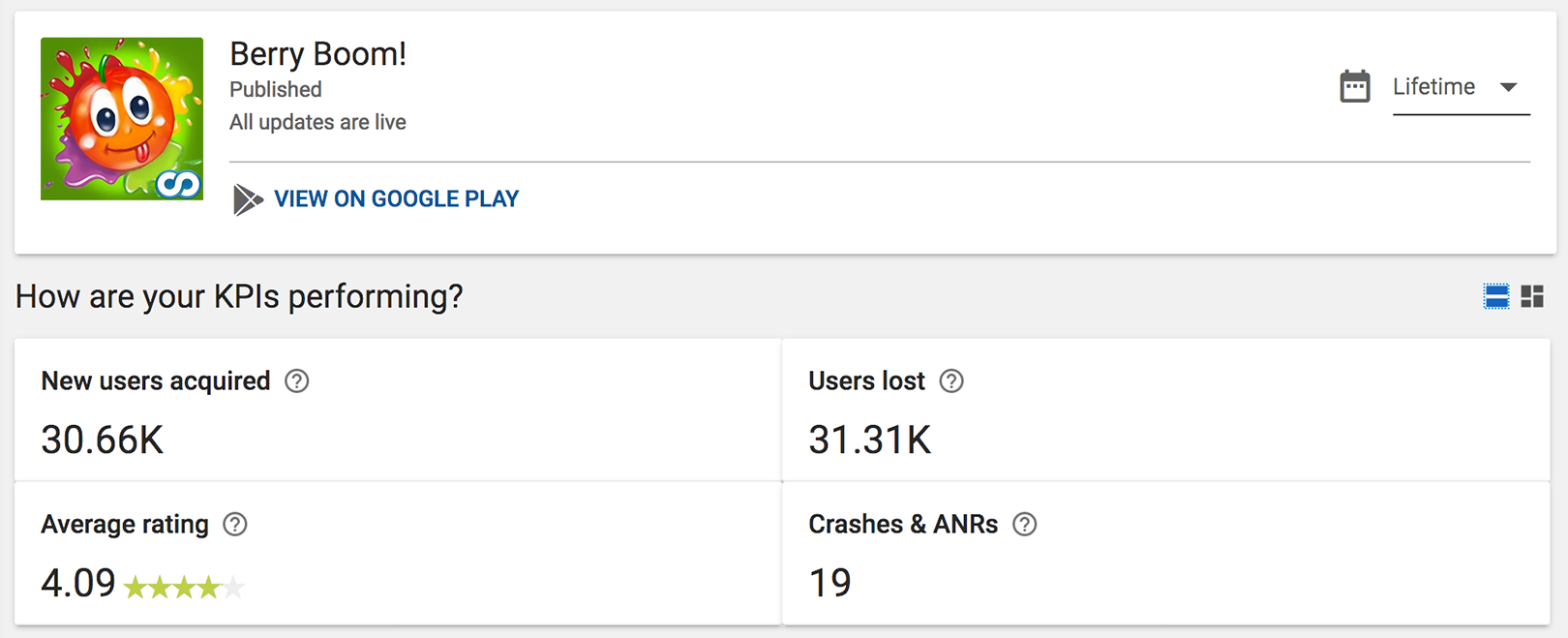"Genie in a bottle" mobile games statistics

It was going to be just a short post regarding some numbers which gained my apps in the past, but it's become a little bit more than that.
As you probably already know, I'm a software engineer working mostly in mobile development. In addition to my commercial job, I've done some work on the side and developed a couple of mobile games of my own. It's necessary to mention here that all of the apps which will be discussed below were created in collaboration with Alexander Veresov who is a friend of mine and was a game designer of the apps.
I want to save here a bit of statistics in order to remind myself of the glory we've achieved ;). The other side of the story is my willingness to practise the skill of writing. I don't think that this might be somehow interesting for anyone except me and Alex, but who knows what people might be appealed to in the future. Let's start without further hesitation.
Berry Boom! for Android
The first app was published a long time ago in September 2011. It's called Berry Boom! and we considered it as a kind of puzzle game. The app was designed to earn us some money from the emerging mobile market, but for some known and unknown reasons the result was a far cry from what we dreamed of. Eventually Berry Boom! got more than 31000 users and it isn't a bad result for an indie game which was published without almost any promotion. The major outcome for me was the restart of my development career in mobile world which in turn led me to where I am now.

The game is still available on Google Play and anyone can download it to their Android devices. It may look not so great on modern phones but it's playable though. You can find some additional materials on the game's page http://gibstudio.com/berryboom. We've created a bunch of screenshots and a few videos illustrating the gameplay.
Turbofinger Arcade Racing for iOS
The second game and its refaced clone were published in December 2016 and August 2017 accordingly. The original app has the title Turbofinger Arcade Racing. I've played for some time with the title, trying to get more users via SEO techniques, but the initial part of the name wasn't changed.


Unfortunately, time has passed and the days when simple apps without much advertisement might be seen on the top finally came to an end. Anyway the original Turbofinger got its audience and collected slightly more than 14500 users. The reviews weren't bad, but it was too simple a game to get to the top.
Fingertron Demon Racing for iOS
The 3rd mobile game, called Fingertron Demon Racing, has started its way half a year later after the initial release of Turbofinger. The gameplay was almost exactly the same, but we've considered to take our chances and to refurbish the graphics to make it look more futuristic and scary. It was an endeavor to get some reaction from the young and cut our piece of the pie.
Funny enough, but the result was about 7150 installs - each of our apps had twice less users than the previous one. Although, the last one didn't take much time from us as 2 previous.


Anyone who wants to try Turbofinger or Fingertron can find them on the App Store. They both are available there until I stop paying the bills to Apple :). If one find this post some time after and the apps won't be available, you always can check more information on the apps' pages http://gibstudio.com/turbofinger and http://gibstudio.com/fingertron. There are screenshots, videos and descriptions of the games.